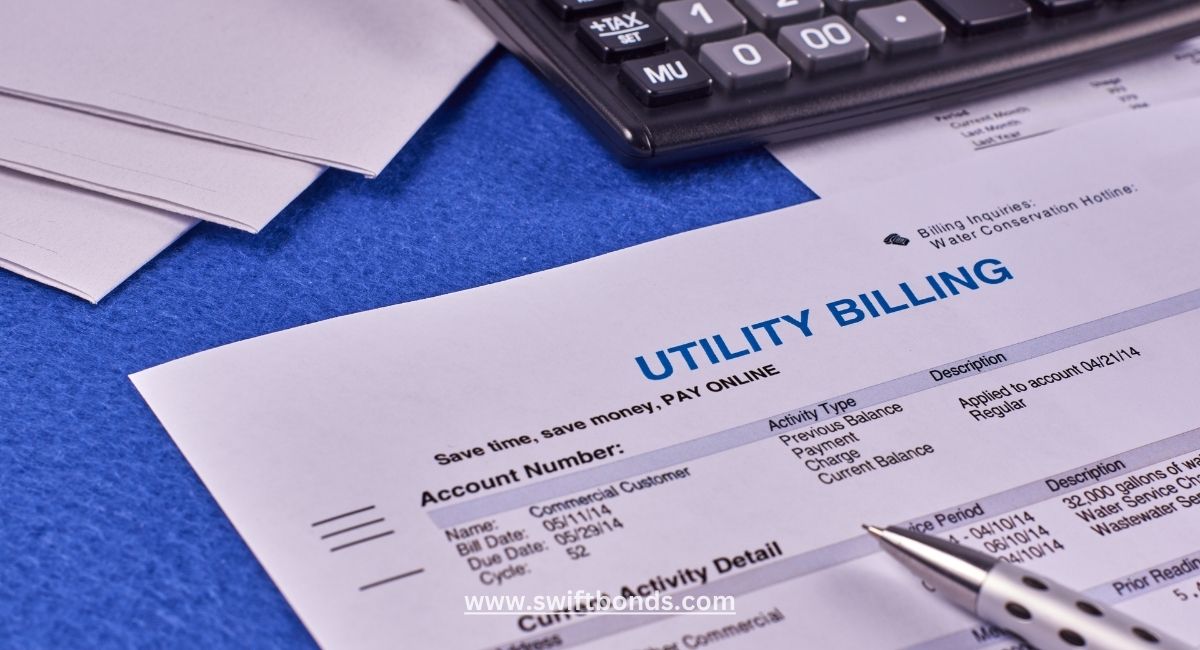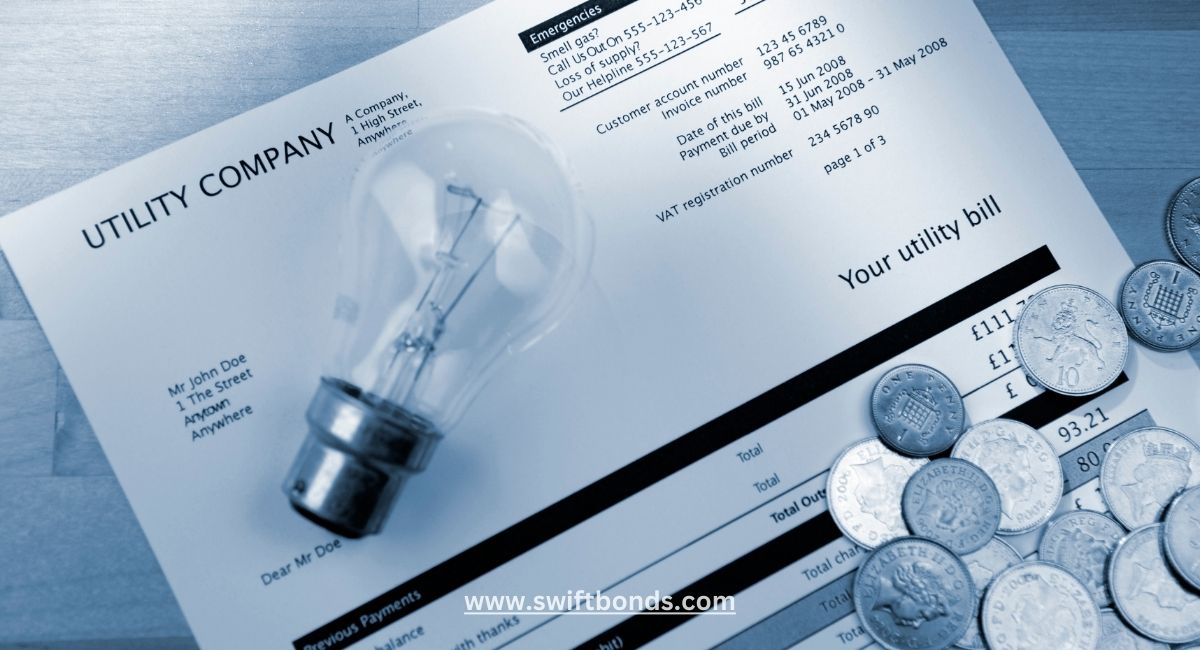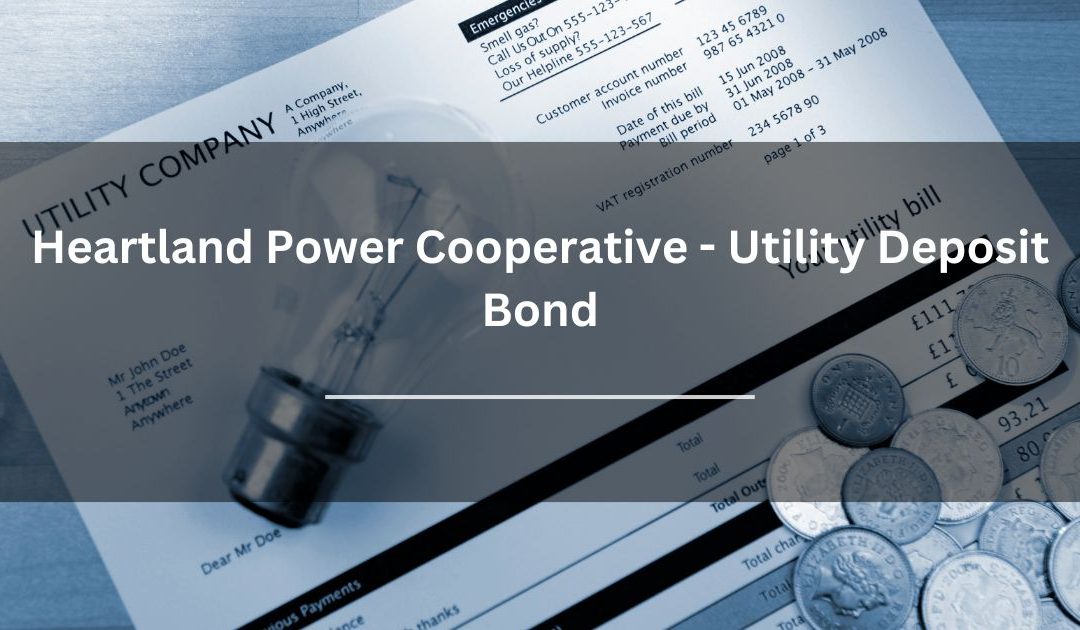Get an Instant Quote on Utility Deposit Bond
Introduction
Businesses and property owners in Iowa often rely on Heartland Power Cooperative for essential electrical services. Before initiating or continuing service, Heartland Power may require a Utility Deposit Bond as a financial guarantee that customers will meet their payment obligations.
This bond provides an alternative to cash deposits, allowing businesses to allocate financial resources elsewhere while still satisfying utility company requirements. By securing this bond, businesses can ensure uninterrupted service and demonstrate financial responsibility to Heartland Power Cooperative.
Common Challenges When Setting Up a Utility Account
We’ve noticed that businesses and property owners often struggle with the upfront costs required to establish or maintain utility services. Some companies face high cash deposit requirements that strain their operating budgets.
Without a Heartland Power Cooperative - Utility Deposit Bond, customers must often pay a significant security deposit, which ties up capital that could be used for business expansion, payroll, or other operational expenses.
In some cases, businesses with limited credit history or previous late payments may face stricter requirements. This makes it more difficult to set up or reinstate utility accounts.

How the Utility Deposit Bond Benefits Businesses
Based on our experience, the Heartland Power Cooperative - Utility Deposit Bond offers multiple advantages for businesses and property owners.
- Replaces Cash Deposits – Instead of tying up working capital in a large security deposit, businesses can secure a bond that guarantees payment to the utility provider.
- Ensures Continued Service – The bond reassures Heartland Power Cooperative that customers will fulfill their payment obligations, reducing the risk of service disruptions.
- Improves Cash Flow – Businesses can use funds elsewhere rather than placing a lump sum deposit with the utility company.
- Supports Business Growth – Without large deposits required upfront, businesses have more flexibility to invest in operations, staffing, and infrastructure.
This bond serves as a risk-management tool that benefits both customers and the utility company.

Steps to Secure a Heartland Power Cooperative Utility Deposit Bond
What we’ve discovered is that obtaining a Heartland Power Cooperative - Utility Deposit Bond involves a straightforward process:
- Determine the Required Bond Amount – Heartland Power Cooperative sets deposit bond requirements based on a customer’s credit history and expected energy usage.
- Choose a Surety Bond Provider – Working with a reputable bond company ensures competitive rates and reliable service.
- Complete an Application – Businesses provide company details, credit information, and financial records.
- Undergo a Financial Review – The surety company evaluates creditworthiness and determines the bond premium.
- Receive and Submit the Bond – Once issued, the bond is submitted to Heartland Power Cooperative to finalize the deposit requirement.
This bond simplifies the utility deposit process and allows businesses to meet their obligations efficiently.

The Risks of Not Having a Utility Deposit Bond
In our observation, failing to secure a Heartland Power Cooperative - Utility Deposit Bond can lead to operational and financial challenges.
Without this bond or a cash deposit, businesses may be unable to activate or maintain electric service. This can delay openings, disrupt daily operations, and negatively impact revenue.
Customers with past-due accounts may face service interruptions or reconnection fees, adding further costs to their financial burden. Additionally, those unable to meet Heartland Power Cooperative’s deposit requirements may struggle to secure commercial or industrial utility contracts.
For businesses that depend on consistent power supply, securing this bond is a proactive measure that prevents service disruptions.

How Utility Deposit Bonds Improve Financial Stability
We’ve learned that businesses benefit from maintaining an active Heartland Power Cooperative - Utility Deposit Bond in several ways.
- It preserves cash flow by eliminating the need for a large upfront deposit.
- It streamlines business operations by ensuring uninterrupted utility service.
- It strengthens financial standing by demonstrating reliability to utility providers.
Many businesses choose to renew their bond rather than tying up capital in a cash deposit, allowing them to reinvest in their operations.
Compliance with Utility Deposit Regulations in Iowa
The Heartland Power Cooperative - Utility Deposit Bond complies with Iowa utility deposit policies. Many utility companies in Iowa allow customers to provide a surety bond instead of a cash deposit.
Utility companies assess deposit requirements based on risk factors such as credit history, payment records, and account status. The bond ensures that customers meet their payment obligations while minimizing financial risks for the utility provider.
Other Bonds Required in Iowa and Nearby Regions
Several bonds serve a similar purpose for businesses operating in Iowa and surrounding states. Examples include:
- City of Davenport, IA - General Contractor ($25,000) Bond – Required for contractors performing construction work within Davenport’s city limits.
- Iowa - Anytime Fitness Franchise Health Club ($25,000) Bond – Ensures compliance with state fitness center regulations, protecting customers from financial losses.
Each bond plays a critical role in maintaining business integrity and regulatory compliance.
Conclusion
Securing a Heartland Power Cooperative - Utility Deposit Bond helps businesses and property owners meet utility deposit requirements without tying up large amounts of capital. This bond serves as a financial guarantee that customers will fulfill their payment obligations, ensuring continuous service and financial flexibility.
Businesses that choose this bond over a cash deposit benefit from improved cash flow, uninterrupted utility service, and greater financial stability. Without this bond, customers may face service delays, large upfront costs, and potential disruptions.
For businesses relying on Heartland Power Cooperative, securing this bond is a practical solution that supports long-term operations.
Frequently Asked Questions
Who needs a Heartland Power Cooperative Utility Deposit Bond?
Businesses, property owners, and commercial customers who need electrical service from Heartland Power Cooperative but prefer not to pay a cash deposit.
How does this bond differ from a security deposit?
A Utility Deposit Bond serves as a financial guarantee in place of a cash deposit. It ensures the utility company receives payment while allowing businesses to preserve cash flow.
What happens if a business does not pay its utility bill?
If a business fails to make payments, Heartland Power Cooperative can file a claim against the bond to recover outstanding charges. The surety provider then seeks reimbursement from the business.
How much does this bond cost?
The cost depends on the business’s creditworthiness, financial history, and bond amount required by Heartland Power Cooperative. Strong credit applicants receive lower premiums.
Are additional bonds required for businesses in Iowa?
Yes. Some businesses may need other bonds, such as the City of Davenport, IA - General Contractor ($25,000) Bond for contractors or the Iowa - Anytime Fitness Franchise Health Club ($25,000) Bond for fitness centers.


